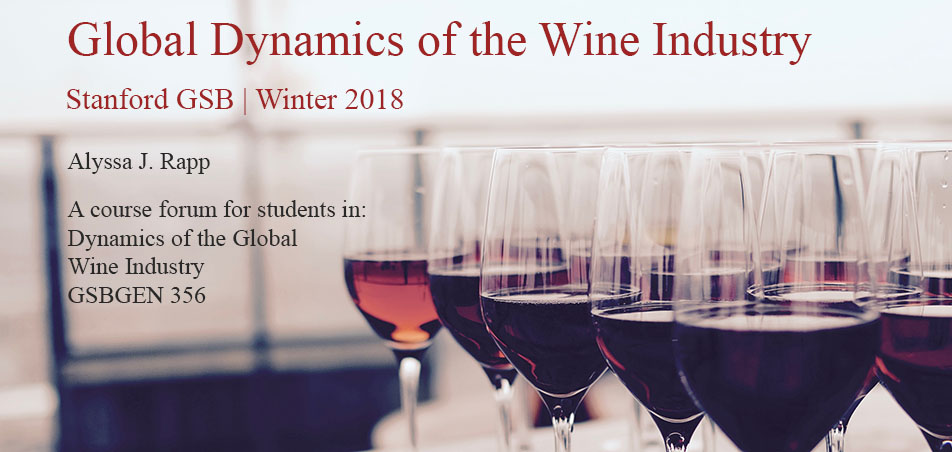I'm excited for the class! I've been interested in wine for about
five years now, and I feel like I've accumulated a number of random factoids at
various tasting rooms, restaurants, and Netflix specials. I'm interested in
systematizing this knowledge, particularly around tasting. What is the
"typicity" of different varietals, and what signposts should I look
for if trying to identify a wine during a blind taste?
I'm also interested in understanding the wine ecosystem or economy
in greater detail, particularly the local system of smaller growers here in
California. There is a lot of quality wine that doesn't come from well-known
brands like Mondavi or Silver Oak. I'd like to know which local players are
innovating wine production or consumption, and hopefully try them out! I want
to better understand how the process of winemaking drives quality, rather
than simply looking to the price of wine or wine point scores. Finally, I would
like to understand the components of operating a smaller winery – what is it
that attracts and enables so many billionaire hobbyists to the art of
winemaking?
Finally, I would like to better understand the economics of
winemaking and the wine value chain. How much of the value of a typical wine bottle
goes to grape growers vs. wine makers, bottlers, distributors, and retailers?
How different is this for domestic vs. international wines? And, how much does
aging wine add to its cost – and its quality?
